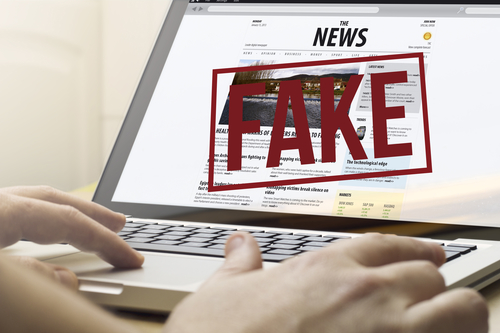Stories and complaints about “fake news” are continuing to capture headlines. The pandemic has heightened our need to identify reliable sources of information and learn how to think critically about what we are reading, hearing and watching each day.
Media coverage of the COVID-19 pandemic has shown just how widespread misinformation can become. The World Health Organization (WHO) recently reported that not only were we fighting COVID-19, but also an “infodemic,” meaning an overwhelming amount of information, Even the WHO has been under attack with questions whether it is a source of reliable information.
It’s a lot to process. And it can be difficult to know if you’re reading a news item, or even government information, that’s real, verifiable, and factual. The motives for people to politicize scientific data and to attack the credibility of news organizations and government sources are not new. What is new is the heightened level of caution all of us must exercise when receiving news. Most of us don’t have the time to research and vet everything we read. So, here are some general guidelines that can help us figure out if a particular news item or website is credible or not. Over time, these will help us distinguish between reliable and unreliable sources.
Check the URL
Many fraudulent sites mimic real news organizations to make their work appear legitimate. In other words, a group trying to make you think you’re reading a report on NPR might use a URL like npr.com.co. It is similar enough to the real URL (npr.org) that some people might not notice that it has a Colombian domain name.
One way to check if you aren’t sure about a site’s actual URL is to Google that organization and see what comes up first. Generally speaking, the legitimate site will appear at the top. You can click on it to see if the content is the same.
We’ve had some hard lessons in recent years about nations adverse to our democracy launching false flag campaigns on social media to foment dissent. Those campaigns are not new. The internet, however, makes them harder to identify and easier to spread than in the pre-internet days. If we’re not careful, we will become easily misled.
Look for Spelling and Grammatical Errors
While real news agencies may make mistakes every day, they set incredibly high standards to ensure that issues like spelling and grammar errors don’t happen.
Additionally, they follow strict style guides that don’t allow the use of dramatic punctuation and WRITING IN ALL CAPS, for example. Or the exclamation point—you won’t find it in most established and credible news organization posts.
Try to Find the News Report Elsewhere
When there’s a big story, it doesn’t take long for all of the big news organizations to pick it up. Often, you can read similar versions of the same news item on FOX, ABC, NBC, CBS, CNN, MSNBC, and so on. When different news outlets generate different reports about the same events, that helps show where each outlet’s perspectives come from.
So, if a news report seems even slightly odd, do a search for that specific story. If it’s being covered everywhere, that is a good sign. If the only places mentioning it are alternative news sites and personal blogs, take it with a grain of salt.
“The Media”
Watch out for the bait behind statements such as “Why won’t the mainstream media cover this story?” Or “You won’t read about this in the mainstream media.” Depending on the subject matter, that may be true. If, however, some event or trend is unusual and verifiable, then a newspaper, broadcast station, website or other media somewhere will have published something about it. More than likely, statements like these are intended to inflame the reader into believing the media are biased against whatever political viewpoint is behind the statement.
For that matter, who are “the media”? Many people use the singular– the media “is.” But in reality, the media are many separate organizations, not one monolithic organization. There have been significant amounts of consolidation in recent years of large media groups. At the same time, the internet has allowed an explosion of new companies and voices within the universe of “media.”
Having a healthy and diverse media is crucial to our form of self-government. So, when someone says “The media are biased against x, y, or z,” ask the question, “Which media?” Are Fox News and MSBC both mainstream media and are they not considered by some to operate at opposite ends of the political spectrum?
That’s why the phrase mainstream media loses meaning. In any event, if a media organization, mainstream or otherwise, appears biased drop them from your list of sources or rmake sure to recognize their viewpoint in covering the news.
See if the Publication Corrects its Errors
Even legitimate and respected news agencies make mistakes. The difference between the legitimate and fake news outlets is the legitimate ones will consistently correct their errors and do so publicly. For example, they print retractions, detail the specific errors, and let you know when they have updated an online news item with the correct information. With so much content out there, it usually doesn’t take long to find a story or two on a legitimate site that contains these kinds of corrections.
While news sources are responsible for reporting facts, it is also your responsibility as a media consumer to verify the information you are sharing with others. Use these guidelines to make sure you are not further spreading misinformation.
Thomas Jefferson famously said if given the choice between a government without newspapers or newspapers without a government he would gladly take the second option—because a well-informed citizenry can govern themselves. That only works, however, if we are well-informed.
It’s up to us to make sure we rely on reliable sources.
